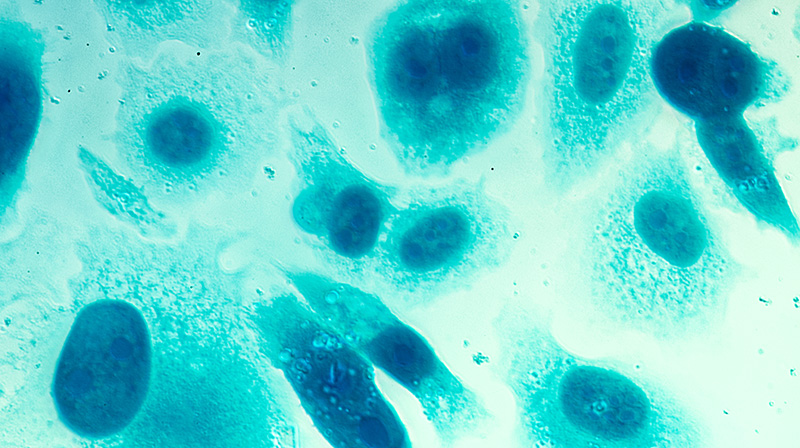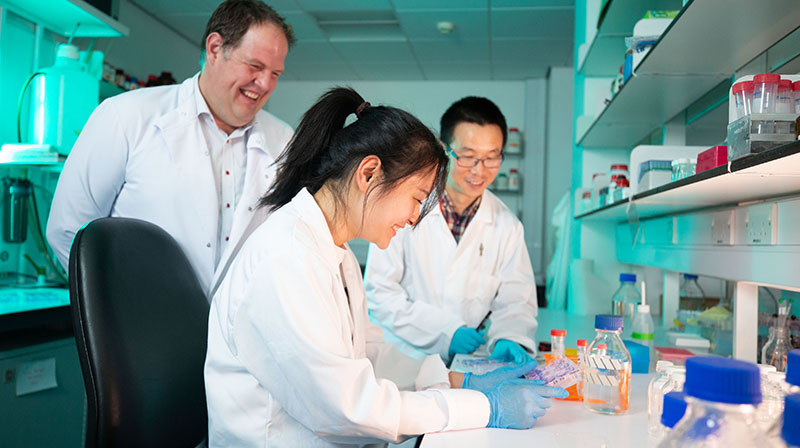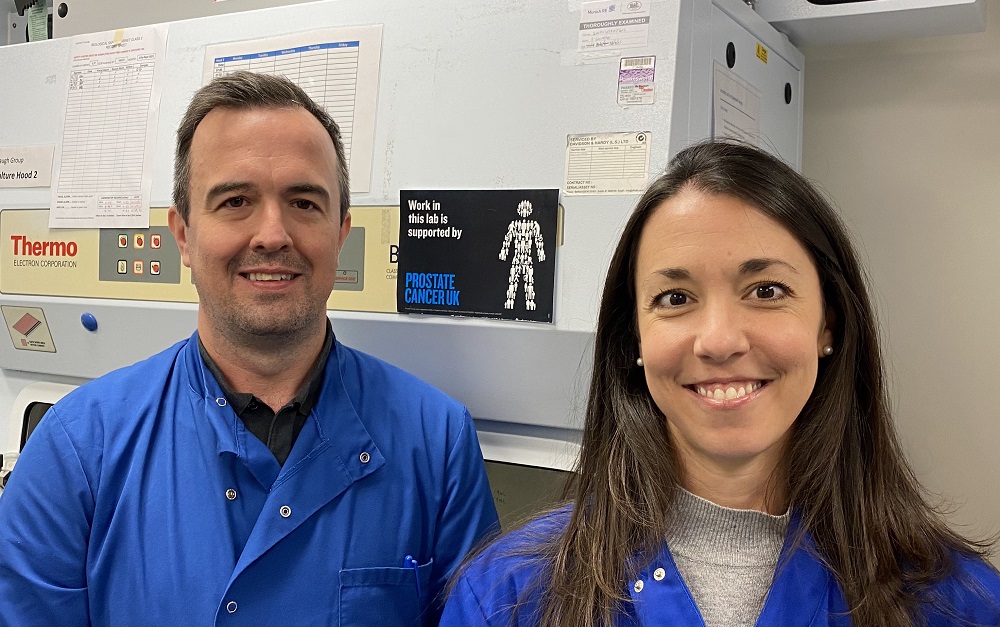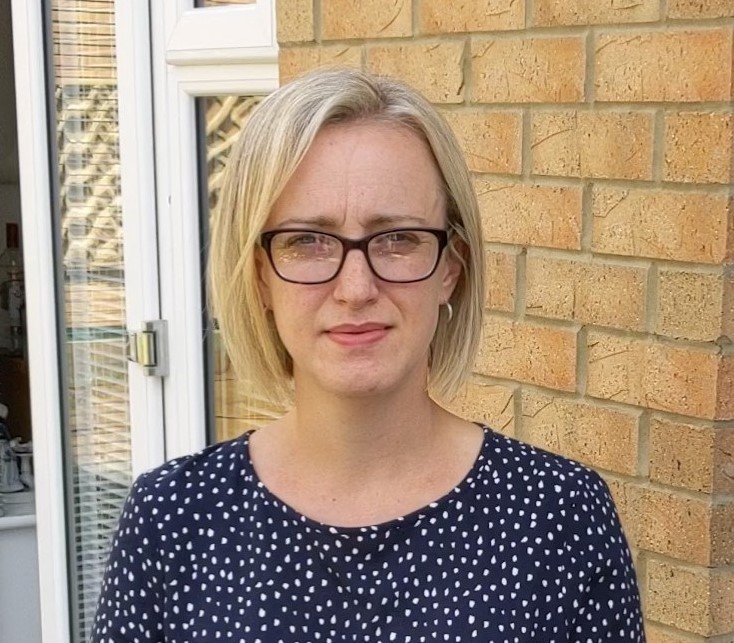Research
17 Dec 2021Can we use gold to fight cancer? It’s one question we aim to answer as we invest £2 million into six new research projects.
Radiotherapy super-charged by gold, helping the immune system to target cancer and more.

To create a future where no man’s life is limited by prostate cancer we need to fund the best and brightest researchers taking on the most inventive and ambitious projects. Our Research Innovation Awards help us to do that.
We’ve just awarded over £2 million to six boundary-pushing projects. Although the areas of research are diverse, they all have one thing in common – the potential to transform men’s lives. Here’s what you need to know about this year’s line-up.
Dr Coulter has a golden opportunity to cure more men with aggressive disease
Radiotherapy is a powerful treatment for men with early-stage prostate cancer, but unfortunately up to one in four men with aggressive disease will see their cancer return.
To combat this, we’re funding Dr Jonathan Coulter to develop a new treatment that uses tiny gold particles, called nanoparticles, to amplify the cancer-killing effects of radiotherapy and help prevent prostate cancer from coming back.

Dr. Coulter and his team plan to load these gold nanoparticles into a biodegradable implant that will slowly release them into the prostate. This should make radiotherapy a more accurate treatment than ever before, even when lower doses are used.
“We hope to build a case to start testing these gold nanoparticle-loaded implants in men undergoing radiotherapy,” Dr Coulter says. “Ultimately, we’re confident that our new treatment will help men with localised high-risk prostate cancer live longer and better lives.”
Dr McDade and Dr LaBonte Wilson aim to use the immune system to kill prostate cancer
Like Dr Coulter’s project, the majority of this year’s Research Innovation Awards are focused on developing pioneering new treatments that will save more dads, grandads, partners and brothers each year.
Dr Simon McDade and Dr Melissa LaBonte Wilson are investigating a new drug that blocks the activity of a family of proteins called HDACs. This drug is particularly exciting as it could activate the immune system to destroy prostate cancer cells. Immunotherapies hold huge potential but have so far shown little success in men with prostate cancer.

Dr McDade says: “We’ve shown that in colorectal cancer, blocking the action of particular HDAC proteins not only improves the cancer-killing effects of standard treatment, but also potentially makes the immune system better at finding and attacking cancerous cells. We now want to find out whether this type of drug can trigger immune cells to fight prostate cancer.
“In the future, we hope to use this drug alongside hormone treatment and radiotherapy to create a longer-lasting effect that will stop prostate cancer from returning and give men a better quality of life.”
Dr Coffey is making prostate cancer treatment personal
No man’s prostate cancer is the same – which is why it’s important we move away from a ‘one-size-fits-all’ approach to treatment to a more personalised one. We’re funding Dr Kelly Coffey to develop a tool that will help doctors choose the right drug for the right man dependent on his individual cancer. This type of precision medicine will help maximise treatment benefit and improve outcomes for men.

“We know that certain proteins in prostate cancer cells, called kinases, can fuel cancer growth and spread,” Dr Coffey says. “Although we have drugs to stop kinases from working, our understanding of which men would benefit most from these medicines is unfortunately still very limited.
“In this project, we will test a new way of measuring the activity of ten different kinases associated with prostate cancer progression. We hope to develop this into a diagnostic tool that can tell us which kinases are most active in each individual cancer, so we know which drugs would be most beneficial for each man.”
Here’s our full list of projects we’re funding this year, thanks to you:
- Investigating a new cancer drug to improve treatment for men with prostate cancer - Professor Simak Ali and Professor Charlotte Bevan, Imperial College London
- Using artificial intelligence to measure image quality in Magnetic Resonance Imaging - Dr Tristan Barrett, University of Cambridge
- Finding the men most likely to benefit from a new prostate cancer treatment - Dr Kelly Coffey, Newcastle University
- A golden opportunity: enhancing radiotherapy outcomes for men with prostate cancer - Dr Jonathan Coulter, Queen’s University Belfast
- Gold nanostars: a new vehicle for targeted drug delivery - Dr Robert Kypta, Imperial College London
- Using a new drug to improve response to radiotherapy and hormone therapy - Dr Simon McDade and Dr Melissa LaBonte Wilson, Queen’s University Belfast
We can push such innovative and ambitious ideas because of the support of people like you. Donate today to help us drive transformations in treatment and save lives.
